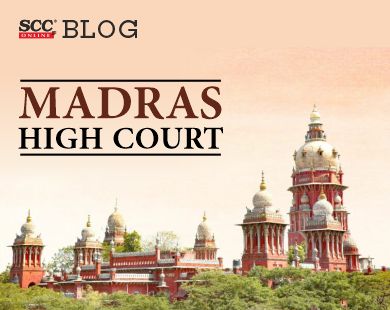Madras High Court: In three writ petitions challenging the premature release of 13 life convicts by the State Government in exercise of its power conferred under Article 161 of the Constitution of India, the division bench of Dr. G. Jayachandran* and Sunder Mohan, JJ. on appreciating the facts and the perusal of records, found that no irrelevant or extraneous materials entered into the decision-making process. Therefore, it held that the order granting premature release will sustain.
Background:
In the case at hand, when the deceased persons (victims) were proceeding in a private bus, a gang of about 40 persons armed with lethal weapon, stopped the bus and brutally attacked the occupants. In the said attack, 8 persons died, while several others were injured. All the victims belonged to the Schedule Caste.
A case was registered under Sections 120-B, 147, 148, 341, 307 and 302 of the Penal Code, 1860 (‘IPC’) and Section 3(2)(v) of the Scheduled Castes and the Scheduled Tribes (Prevention of Atrocities) Act, 1989 (‘SC and ST Act’). The Trial Court acquitted 23 accused from all charges and convicted 17 for offences under Section 302 read with 34 IPC and sentenced them to undergo life imprisonment. All the accused were acquitted from the charges under SC and ST Act. Further, appeals to the High Court and then to Supreme Court by the convicts were dismissed. The Criminal Revision Petitions filed on behalf of the victims against the order of acquittal of 23 accused from murder and all the accused from charges under the SC and ST Act, were dismissed by the High Court and no further appeal was filed before the Supreme Court challenging the acquittal. The 17 life convicts were sent to prison and one among them died in prison due to illness.
Out of the remaining 16 convicts, three were released pre-maturely in 2008. Subsequently, the remaining 13 convicts were ordered to be released, vide the Government Order dated 08-11-2019, pursuant to the decision taken by the State Government to grant amnesty to life convicts who have completed 10 years of imprisonment, to commemorate the Birth Centenary of Bharat Ratna Puratchi Thalaivar Dr. M.G. Ramachandran, subject to Prison Rules.
Issue:
Whether the Court can substitute its view in the place of the policy decision of the State exercised under Article 161 and Sections 432, 433 of the Code of Criminal Procedure, 1973 (‘CrPC’), just because, the judiciary differs from the view of the Governor, who is head of the executive and act under the aid and advice of the Council of Minister
Analysis and Decision:
The Court relied on Epuru Sudhakar v. Govt. of A.P., (2006) 8 SCC 161, wherein it was said that the power of executive clemency is not only for the benefit of the convict, but while exercising such a power, the President or the Governor has to keep in mind the effect of his decision on the family of the victims, the society as a whole and the precedent it sets for the future. Further, the power of pardon is the prerogative of the Government, but not immune from judicial review. If the decision indicates exercise of the power by application of manageable standards, Courts will not interfere in its supervisory jurisdiction. A pardon obtained by fraud or granted by mistake or granted for improper reasons would invite judicial review.
The Court said that the impugned order of premature release has been issued after due consideration of relevant facts, including the objections from the side of victims and the conduct of the prisoners during the parole and in prison.
The petitioner referred to the earlier conviction of one accused, namely Ramar and submitted that pending trial of this case, he has committed similar crime, in which members of the SC community were murdered (the present case). This is a relevant material, which has not been considered while ordering premature release.
The Court said that though few of the accused are common in both the cases, the reason and motive for the occurrence are not same and the Trial Court in both the cases, has disbelieved the case of the prosecution that the murder was committed because the victims belong to SC community. Therefore, there is no reason to infer that the State has failed to consider relevant materials or passed the order of premature release for extraneous considerations.
The Court, after examining the status report filed by the Additional Public Prosecutor, said that there is no law -and order problem either when the prisoners were released on parole on various occasions and after their premature release. This justifies the discretion of the State exercising its prerogative power applying mind and considering all relevant materials.
[P. Rathinam v. State of Tamil Nadu, 2023 SCC OnLine Mad 698, decided on 03-02-2023]
*Order by: Dr. Justice G. Jayachandran.
Advocates who appeared in this case :
For Petitioner: Senior Counsel T. Lajapathi Roy, Advocate A.C. Asai Thambi;
For Respondents: Senior Counsel N.R.Elango, Senior Counsel V.Karthick, , Advocate S. Kanagarajan, Advocate Y. Jagadeesh, Advocate R. Alagumani.
*Apoorva Goel, Editorial Assistant has reported this brief.







